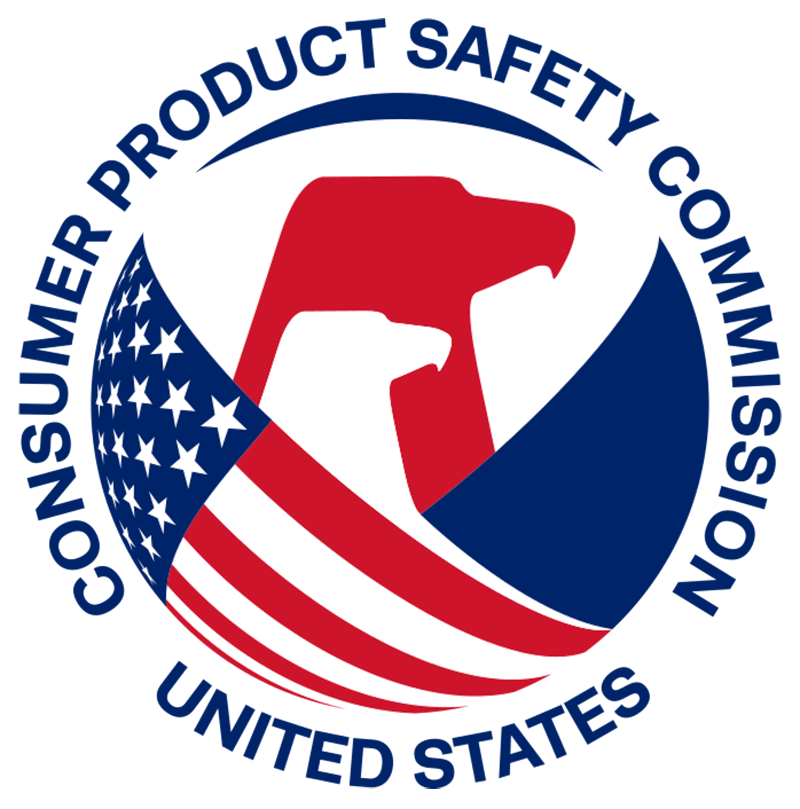The Toy Association™ Provides Input on Proposed CPSC Updates to Certificates of Compliance
 February 12, 2024 | The Toy Association™ submitted comments on February 6 to the U.S. Consumer Product Safety Commission (CPSC) regarding the supplemental notice of proposed rulemaking (SNPR) to revise the agency's rule for Certificates of Compliance. The rule revision would impact any product domestically manufactured or imported in the U.S. that is subject to a General Certificate of Compliance (GCC) or Children’s Product Certificate (CPC).
February 12, 2024 | The Toy Association™ submitted comments on February 6 to the U.S. Consumer Product Safety Commission (CPSC) regarding the supplemental notice of proposed rulemaking (SNPR) to revise the agency's rule for Certificates of Compliance. The rule revision would impact any product domestically manufactured or imported in the U.S. that is subject to a General Certificate of Compliance (GCC) or Children’s Product Certificate (CPC).
The Consumer Product Safety Act (CPSA), as amended by the Consumer Product Safety Improvement Act (CPSIA), requires manufacturers, importers, and private labelers to certify their products’ compliance with consumer product safety rules by issuing certificates accompanying each product. These certificates must specify all relevant rules, bans, standards, or regulations under any laws administered by the CPSC with which the product must comply. Certifications are typically based on product testing or a reasonable testing program; certain children’s products requiring a CPC must be tested by a third-party laboratory that is approved to provide accreditation by the CPSC.
Instead of the current requirement for certificates to accompany a product shipment and be provided to the CPSC upon request, the revised rule proposes a requirement for certificates to be e-filed for all covered CPSC-regulated products prior to sale or importation. Some additional changes include broadening the definition of “importer” to include almost any entity that “… has a financial interest in the product or substance being offered for import and effectively caused the product or substance to be imported into the United States;” including international mail shipments as a covered importation channel; significantly increasing the scope of covered products by including replacement parts into the definition of “finished product;” and new recordkeeping requirements.
“The Toy Association believes in the process of reviewing existing regulations and updating the requirements as new technologies are enabled,” said Jos Huxley, senior vice president of technical affairs at The Toy Association. “However, we recommend several revisions to the proposed rule to address concerns regarding burden, complexity, and practicality that do not actually enhance safety.”
In addition to providing detailed feedback on the proposal, the Association comments included the following points for consideration in order to apply the intended revisions properly and effectively to the CPSC’s proposed update:
- Definition of importer: exclude non-commercial consumer imports from certification requirements, as including them could burden consumers by classifying them as “importers” and disrupt the supply chain
- Treatment of replacement parts: opposition to considering replacement parts as separate finished products, which would increase logistical burdens without enhancing safety
- Requirement for separate certifications by each importer: requesting that CPSC restore primary responsibility for certification to the product manufacturer or private labeler, instead of introducing a requirement for each importer to submit separate (and duplicative) certifications for each shipment
- Analysis of costs and burdens: The Toy Association requests a reassessment of the estimated cost burden of implementing the proposed changes
- Implementation timeline: a need for longer effective date and staggered phase-in period to allow affected parties time to adjust to the proposed changes
The Toy Association will continue to keep its members apprised of developments on this issue. Any questions may be directed to The Toy Association’s Jos Huxley.